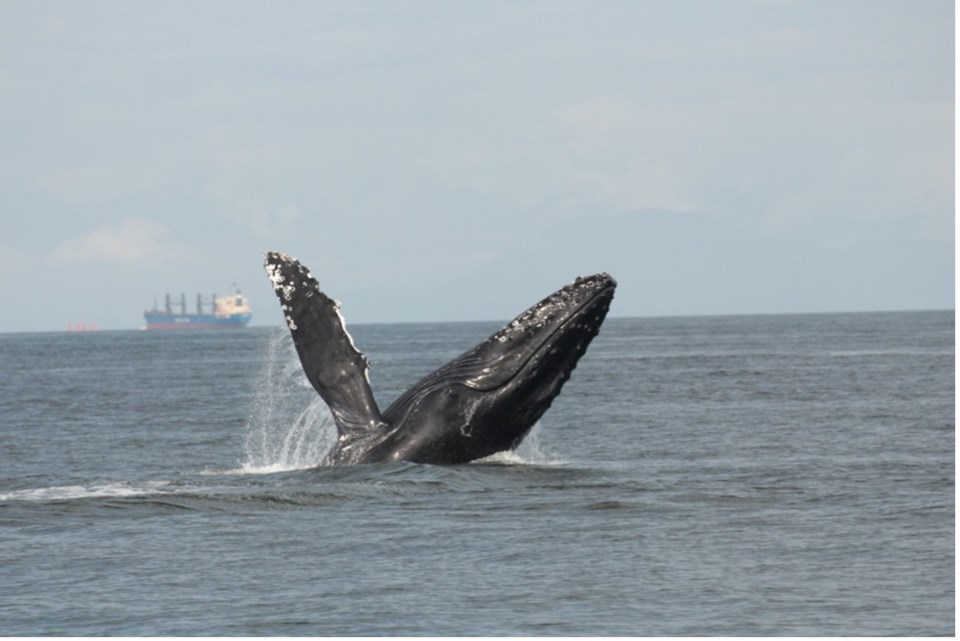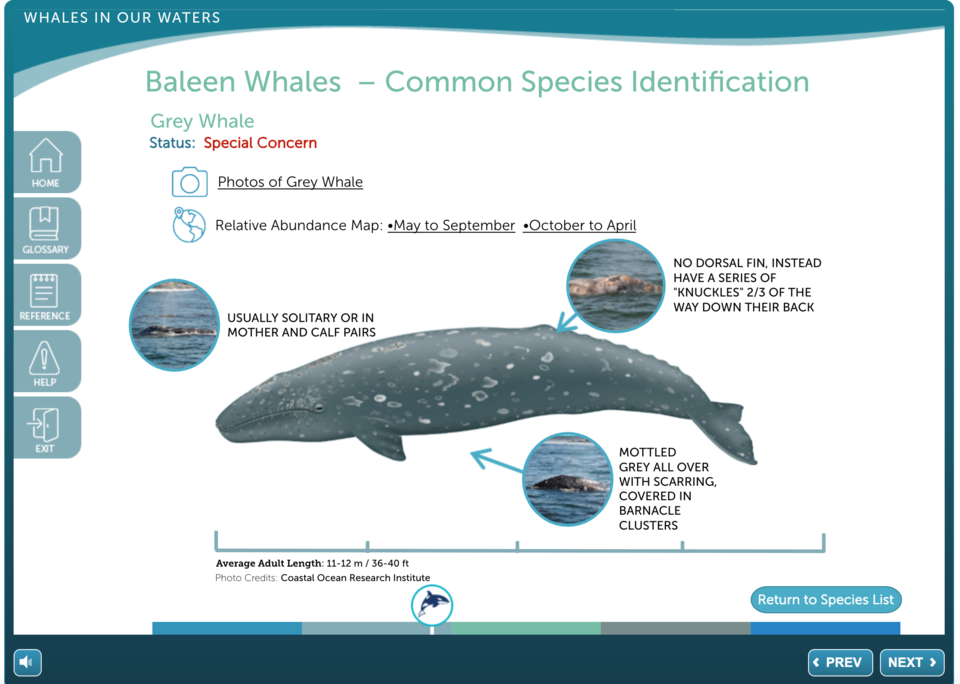You’re probably familiar with British Columbia’s most iconic whale species – killer whales – but did you know that Pacific Northwest waters are home to over a dozen species of whales, including some of the world’s largest?
February 20 is World Whale Day, a day to appreciate the important role that whales play in marine ecosystems across the world, including in the waters off B.C.’s coast -- and thanks to a newly refreshed tutorial by BC Ferries and the Vancouver Fraser Port Authority, you can brush up on your knowledge of these magnificent creatures for free!
The Whales in our Waters tutorial was developed to help mariners test their knowledge of local species and learn how to carefully navigate vessels in their presence based on guidelines from Fisheries and Oceans Canada.
The updated tutorial – which was developed in partnership with Ocean Wise and with input from the Marine Education and Research Society – includes interactive lessons designed to help users identify Pacific Northwest whale species, from enormous species like fin whales to smaller species like harbour porpoises and Pacific White-sided dolphins.
One of the ways the Whales in our Waters tutorial teaches mariners to identify whale species is by having them look out for specific behaviors and cues – like blows and splashes – that are characteristic of certain species. For example, did you know that when a humpback splashes its tail above the surface of the water, that behaviour is called “fluking” and often means they’re preparing to dive?
Another fun fact: Despite their name, harbor porpoises rarely ever “porpoise,” which is the act of leaping in and out of the water at high speeds. Instead, you’re much more likely to see dolphins porpoising.
These whale facts are sure to impress your friends at the next trivia night, and they’re also helping commercial mariners navigate their vessels safely in the presence of whales along our coast.
Over the last three years, over 3,500 BC Ferries and Washington State Ferries crew and staff have completed the Whales in our Waters tutorial as part of their training. By learning how to identify the local whale species sharing our waters, mariners can ensure they’re following best practices, such as remaining at least 400 meters away from at-risk species like southern resident killer whales.
The Whales in our Water tutorial is part of ongoing efforts by the Vancouver Fraser Port Authority-led Enhancing Cetacean Habitat and Observation (ECHO) Program to reduce the impacts of shipping on at-risk whales along British Columbia’s coast.
Since 2017, the ECHO Program has coordinated large-scale ship slowdowns in the Salish Sea to reduce underwater noise in key foraging areas within southern resident killer whale critical habitat. Last year, over 80 shipping organizations participated in the ECHO Program’s voluntary underwater noise reduction initiatives.
Whether you’re an avid boater or just a whale lover, take the 90-minute free tutorial online and earn a certificate of completion.
To register for the tutorial, visit echolearn.portvancouver.com.
To learn more about the Vancouver Fraser Port Authority-led ECHO Program, and the program’s ongoing efforts to reduce the impacts of shipping on at-risk whales, visit portvancouver.com/echo.




